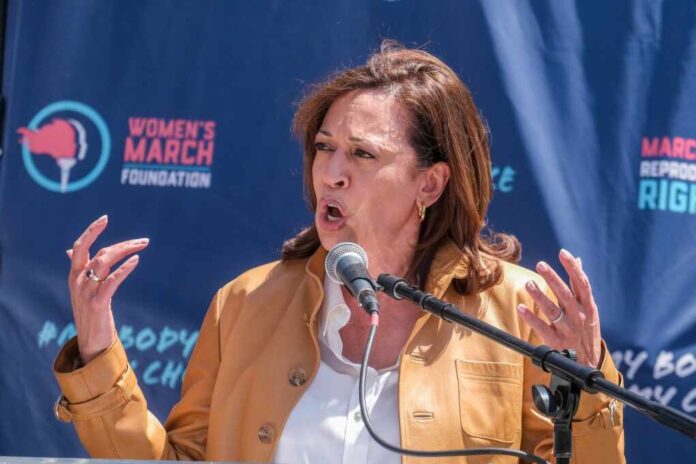
Valentina Dianne McKenzie, chair of the Minnesota Freedom Fund (MFF), an organization overtly supported by Vice President Kamala Harris, has found herself at the center of serious legal trouble. McKenzie’s arrest on August 31 for possession of fentanyl, one of the deadliest drugs plaguing American society, illuminates deeper, more troubling associations between national political figures like Harris and entities with dubious standards.
In 2020, amid the violent and tumultuous Black Lives Matter protests, Harris openly advocated for MFF on Twitter, now known as X. MFF had already established a history of lobbying for criminals by paying their bail, a function that sparked considerable controversy and debate.
WELL WELL WELL…Head of Kamala Harris’ favorite fund that bails out criminals arrested for possession of fentanyl https://t.co/6lGWjHHdTq
— GigiBamaGirl16 (@bama_gigi) September 29, 2023
The gravity of this scenario is further accentuated by the fund’s previous decisions to bail out individuals with severe criminal charges, highlighting the dire consequences of supporting such organizations without adequate scrutiny. Christopher Boswell, a beneficiary of this fund, faced multiple charges, including kidnapping and assault. Shawn Michael Tillman, another individual bailed out by the fund, was later implicated in a homicide case.
Police officers in Bloomington, Minnesota, arrested McKenzie following a traffic violation. Officers found marijuana and an overdose kit in her vehicle and subsequently discovered fentanyl in her possession. This incident has raised substantial questions regarding the propriety and the ethical grounding of the organization and its leadership.
Despite these alarming developments, the links between the Vice President and the MFF seem conspicuously absent from mainstream media coverage, indicating the propensity to shield high-ranking Democratic officials from undesirable publicity.
In response to the publicity when fund beneficiaries reoffended, the MFF asserted that their bail support considers various factors, emphasizing their endeavor to balance justice with community safety. They claim to advocate for solutions such as stable housing, mental healthcare, treatment for chemical dependency, and youth programming to confront violence in communities.
However, the conservative perspective might consider such explanations merely skirting around the core issues. Endorsing funds that provide bail to individuals with violent propensities represents a breach of the commitment to protect society’s most vulnerable.
The circumstance surrounding McKenzie and the MFF isn’t merely an isolated incident but reflects the intricate web of political endorsements and the moral and ethical obligations of those in positions of power. It is an urgent call for citizens and media outlets to delve deeper into the connections between political figures and the organizations they endorse, ensuring transparency, accountability, and safeguarding societal values and safety.
































